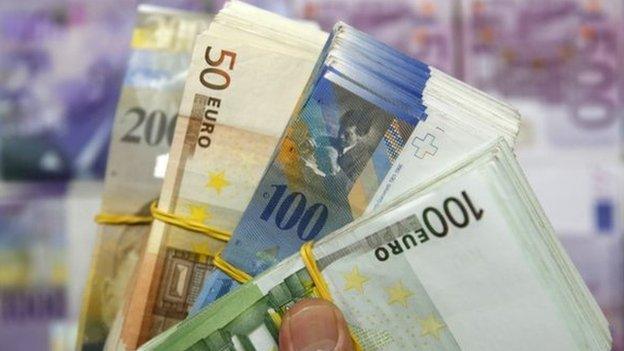Japan delays sales tax rise to 2019
- Published
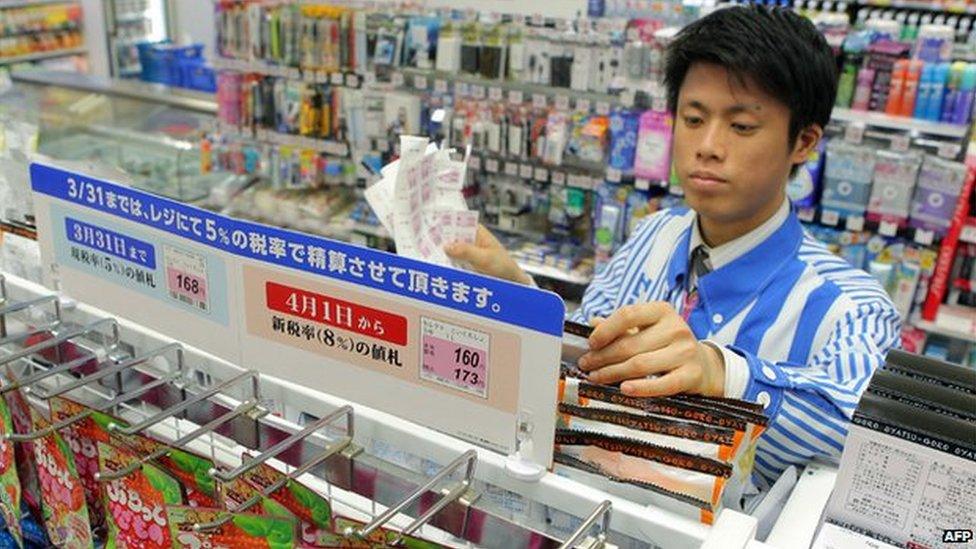
Japan has delayed plans to raise the country's sales tax to 10% from the current 8%.
The tax increase was supposed to take place next year, but now Prime Minister Shinzo Abe wants to delay it to late 2019.
Mr Abe says he wants to speed up his "Abenomics" policy, which aims to reverse more than a decade of deflation and stimulate economic growth.
The sales tax was first introduced in 1989 at a rate of 3%.
"I want to fulfil my responsibility by accelerating Abenomics more and more," Mr Abe told MPs in his ruling Liberal Democratic Party on Wednesday.
The rise in the sales tax from 8% to 10% was initially meant to take place in October 2015, but it was then moved to April 2017 and has now been pushed back even further.
Japan relies heavily on domestic consumption, but its population is ageing and shrinking so fewer people are contributing to the economy.
The Bank of Japan (BOJ) introduced a negative interest rate policy of -0.1% in January, a move which surprised many economists.
The introduction of negative rates - a first for Japan - aimed to increase spending and investment, which should in turn boost economic growth.


Analysis: Karishma Vaswani, Asia business correspondent
Putting off the consumption tax is unlikely to win Mr Abe any friends amongst Japan's economic conservatives. But it's hard to see what else he could have done.
The economic recovery in Japan is still weak, and allowing the consumption tax to go ahead as planned - even if a year away - was likely to have scared consumers in Japan to start saving even more, which is the last thing Japan needs.
What Mr Abe wants to avoid most of all is the pronouncement that his precious Abenomics policy has pretty much failed.
He's bet his credibility on turning Japan's economy around. However, despite using billions of dollars worth of fiscal stimulus and unconventional monetary policy to do this, nothing seems to be working.
Perhaps it may be time to start pressing the pedal on structural reforms - but given the reluctance amongst Japanese corporations to change, that will be much harder to do.

Japan sales tax: Key points
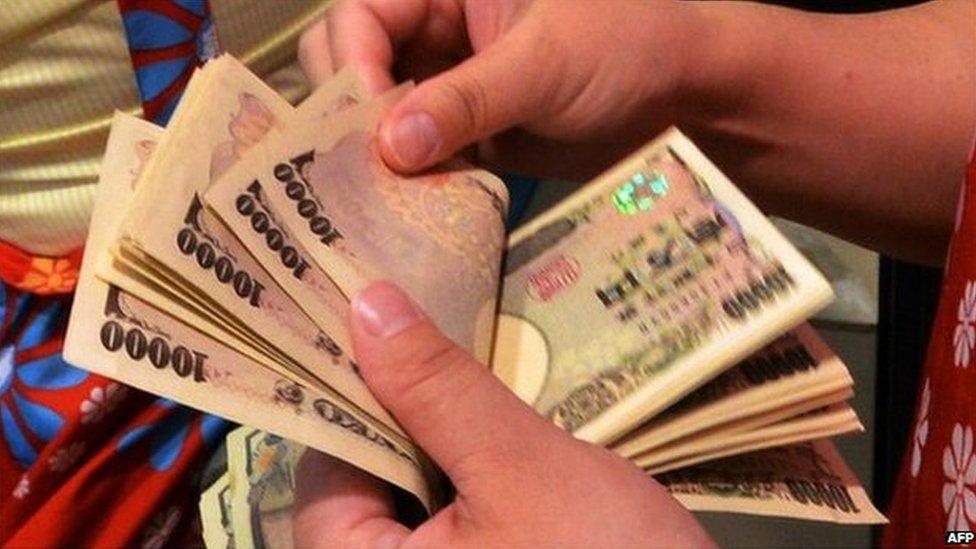
Why does Japan need to delay a rise in the sales tax?
There are fears another tax increase could derail economic growth, which has been patchy. In April 2014 the government raised the sales tax to 8% from 5% and that sent the country into a brief recession. Domestic consumption has yet to recover. Data this week showed household spending and retail sales have continued to fall.
Why is it a controversial move?
Economists have argued the tax rise is critical to help the economy rein in its huge public debt, which has ballooned to more than $11tn - more than 220% of GDP. That's the highest debt level among developed countries, external. Japan desperately needs to find ways to cover rising social welfare costs due to its rapidly ageing population.
What happens now?
The prime minister is widely expected to order an extra budget to boost stimulus measures. Also, the April 2017 sales tax increase is enshrined in law, and the Japanese government would be forced to call a snap election if policymakers wanted to postpone it further. Finance Minister Taro Aso had suggested that Japan should call for a national vote, on whether or not to impose another increase in the nation's sales tax.
- Published8 June 2015
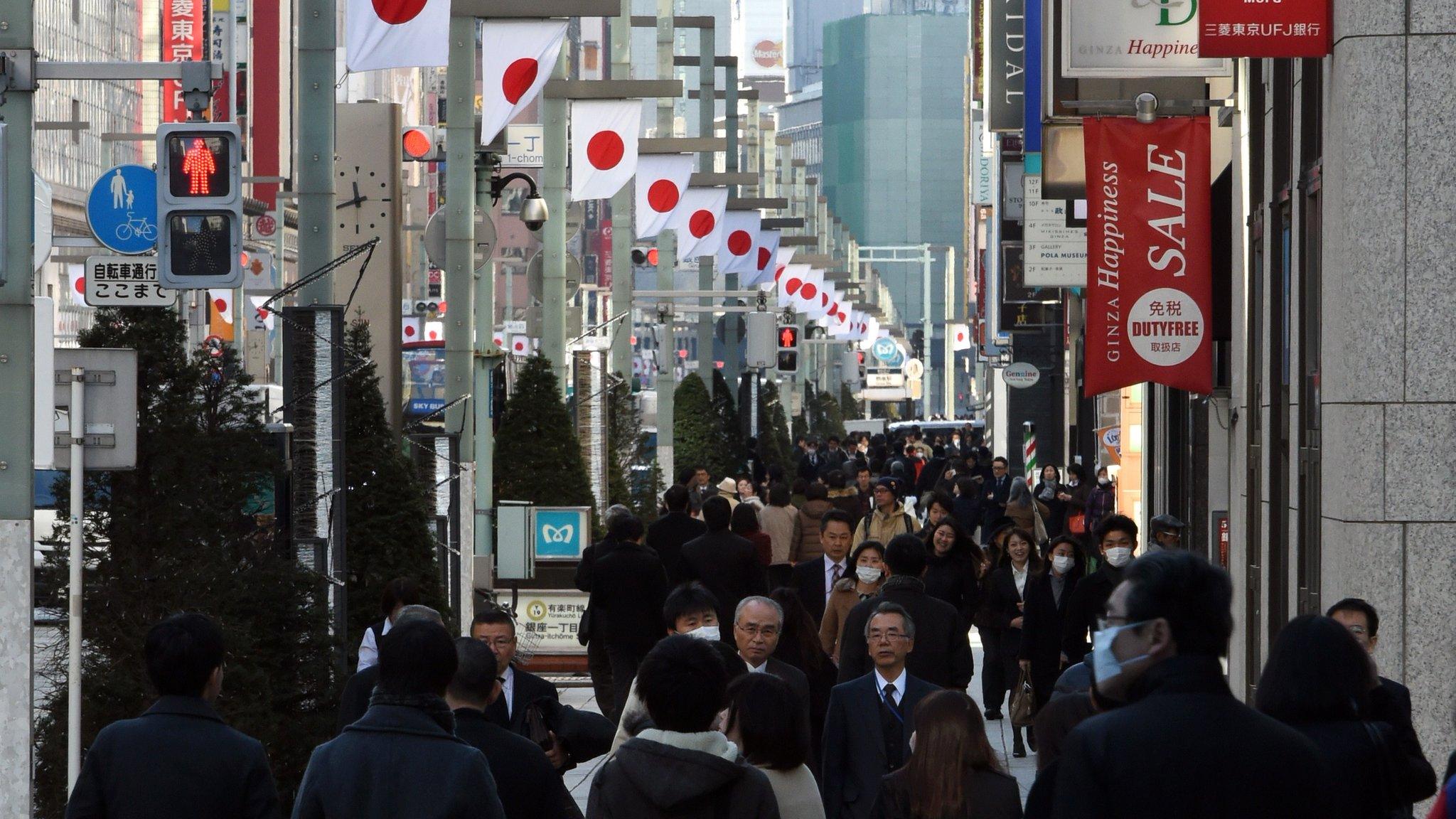
- Published24 May 2016
- Published15 February 2016
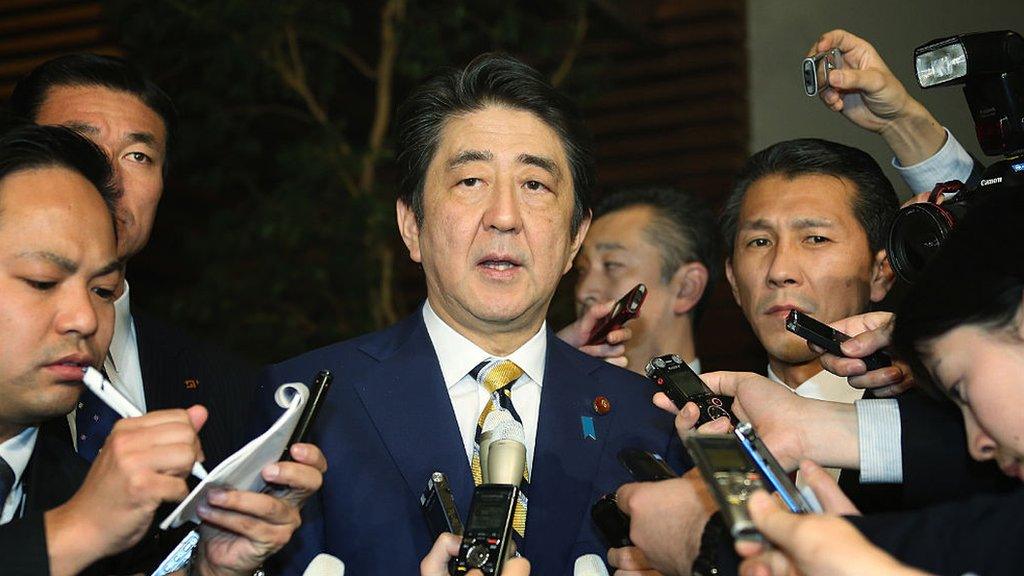
- Published15 February 2016
